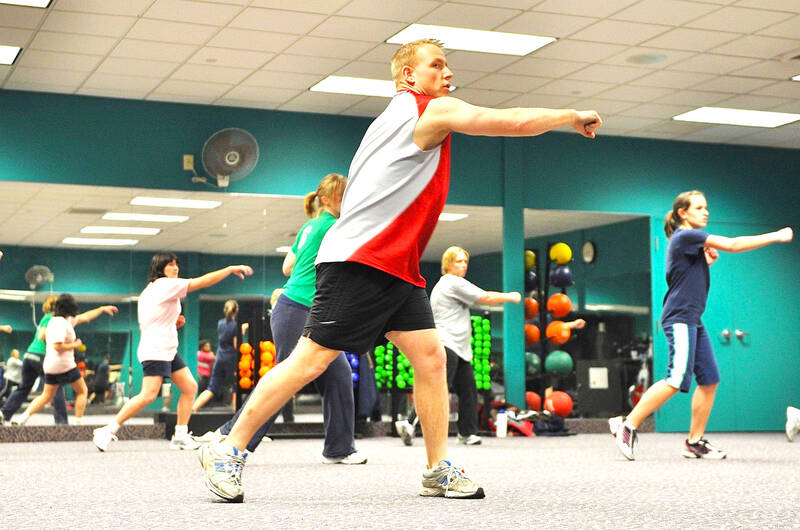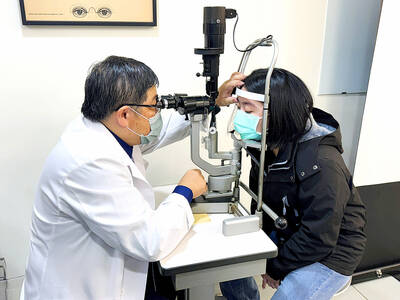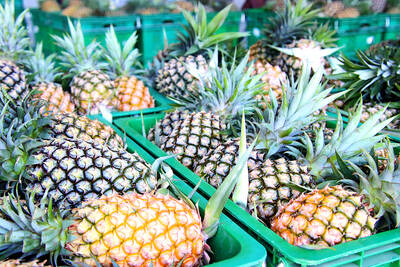對話 Dialogue
清清:唉!坐了一整天,好累喔!
Qīngqing: Āi! Zuòle yì zhěng tiān, hǎo lèi ō!

Photo: Pixabay / 照片:Pixabay提供
華華:下班後跟我去健身房運動運動吧!
Huáhua: Xiàbān hòu gēn wǒ qù jiànshēnfáng yùndòng yùndòng ba!
清清:哈哈哈!我的會員上個月就到期了,我還沒續約。
Qīngqing: Hāhāhā! Wǒde huìyuán shàng ge yuè jiù dàoqí le, wǒ háiméi xùyuē.
華華:那你可能要問問看你的教練該怎麼辦了。
Huáhua: Nà nǐ kěnéng yào wènwènkàn nǐde jiàoliàn gāi zěnmebàn le.
清清:我想回去上有氧運動的課,跳有氧能讓我流汗,加速新陳代謝。
Qīngqing: Wǒ xiǎng huíqù shàng yǒuyǎng yùndòng de kè, tiào yǒuyǎng néng ràng wǒ liúhàn, jiāsù xīnchén dàixiè.
華華:我喜歡做重量訓練,先用一些簡單的器材熱身,再練習舉重,鍛鍊肌肉。
Huáhua: Wǒ xǐhuān zuò zhòngliàng xùnliàn, xiān yòng yìxiē jiǎndān de qìcái rèshēn, zài liànxí jǔzhòng, duànliàn jīròu.
清清:那個我不行,做做瑜珈、踩踩腳踏車,或是跑一下跑步機,對我就很夠了。
Qīngqing: Nèige wǒ bùxíng, zuòzuò yújiā, cǎicǎi jiǎotàchē, huòshì pǎo yíxià pǎobù jī, duì wǒ jiù hěn gòule.
華華:你快去交會費,下次我們就能一起去玩了!
Huáhua: Nǐ kuài qù jiāo huìfèi, xiàcì wǒmen jiù néng yìqǐ qù wán le!
翻譯 Translation
Qingqing: Ah. I’ve been sitting all day, I’m so tired.
Huahua: Let’s go to the gym and work out after work.
Qingqing: Hahaha! My membership expired last month, and I haven’t renewed it yet.
Huahua: Then you might want to ask your trainer what to do.
Qingqing: I want to go back to the aerobic classes. Doing aerobics makes me sweat and speeds up my metabolism.
Huahua: I like doing weight training. I start with some simple equipment to warm up, then practice lifting weights to build muscle.
Qingqing: I can’t do that. Just doing some yoga, riding the stationary bike, or running on the treadmill is enough for me.
Huahua: You should go pay the membership fee so we can go together next time.
生詞 Vocabulary
1. 健身房 (jiànshēnfáng) gym
2. 會員 (huìyuán) member, membership
3. 續約 (xùyuē) renew a contract
4. 教練 (jiàoliàn) coach
5. 有氧 (yǒuyǎng) aerobic, cardio
6. 新陳代謝 (xīnchén dàixiè) metabolism
7. 熱身 (rèshēn) warm-up
8. 瑜珈 (yújiā) yoga
教材音檔 Audio Files
國立清華大學華語中心提供
By National Tsing Hua University Chinese Language Center:

A: Recently, I’ve been seeing mosquitoes flying around in front of my eyes. The doctor said it’s the “flying-mosquito disease.” B: Flying mosquitoes? What a strange name. A: They’re actually called “floaters” in English, meaning floating debris. When fibrous substances in the vitreous body inside the eyeballs increase, floaters can appear in the visual field. B: Oh my goodness. Can you get rid of them? A: According to ophthalmologist Horng Chi-ting’s research, taking the enzymes of certain fruits is likely to help reduce floaters. A: 我最近一直覺得眼前有蚊子飛來飛去,結果醫生說是「飛蚊症」。 B: 飛蚊症?好奇怪的病名。 A: 英文名稱叫「floaters」, 也就是漂浮物的意思。 因為眼球的玻璃體中纖維化物質增多,導致視野出現漂浮物。 B: 天啊!要怎麼把蚊子趕走? A:

In Taiwan, people can use a platform to rent a power washer for a weekend or share unused garage space for someone’s storage needs. These are examples of the sharing economy, a consumption model that has gained widespread adoption worldwide. This approach allows people to rent or share assets like cars, homes or even services, typically through online platforms. This innovative model poses a simple yet powerful question: why purchase infrequently used items when sharing is more practical? By making useful but idle resources accessible, the sharing economy turns them into sustainable opportunities. Internationally, platforms like Airbnb and Uber have popularized

Bilingual Story is a fictionalized account. 雙語故事部分內容純屬虛構。 I stand by the Miluo River as dusk falls. The court betrayal is too much. I served Chu with loyalty. I forged alliances and fought corruption. But the whispers of jealous courtiers, the murmurs of treason, spoke louder. The king cast me out. The water looks calm. It promises peace. I step in. The river is cold against my legs. I hear shouts behind me — fishermen calling my name. I keep walking. The calls grow louder, but I do not turn around. The water rises to my chest. It pulls at me. I

A: What types of fruit enzymes should we take to help reduce eye floaters? B: According to a study published in the “Applied Sciences” journal by Taiwanese ophthalmologist Horng Chi-ting, pineapple, papaya and fig supplements can improve symptoms. A: Pineapples are in season now, so you should munch on more of those to get rid of floaters. B: Not quite. Enzymes can be damaged by our stomach acid if we eat the fruit directly. The doctor says taking fruit enzyme capsules is better for absorption. A: Most importantly, we should reduce our use of personal electronics to prevent floaters from